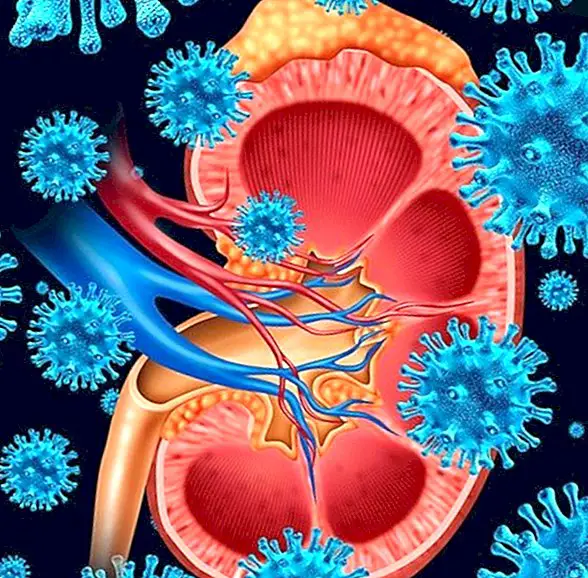Uremia: what it is, symptoms, causes and treatment
Did you know that the medical term uremia comes in fact from the Greek, and literally means "urine in the blood" ?. The truth is that uremia arises as a result of the accumulation of different and different wastes that originally, normally, should be eliminated by the kidneys. Therefore, in the medical field, it is synonymous with renal insufficiency very advanced, and it is also known as Uremic syndrome for the different symptoms it causes.
As you surely know, the kidneys are two bean-shaped or bean-shaped organs that, among other important functions, are responsible for the elimination of waste products resulting from metabolism. One of these products is high creatinine, the result of normal metabolism of both mass and muscle activity. And another of these products is the urea, which is derived from the metabolism of proteins.

Precisely When the function of the kidneys decreases, nitrogenated products begin to accumulate in our body derivatives of this protein metabolism, condition that receives the medical name of hyperazoemia, which is initially asymptomatic but if it progresses and renal function continues to decline, a certain series of clinical symptoms will begin to appear. It is just the moment when we should talk about uremia, since the symptoms that arise are as a result of the increase of urea in the blood.
The symptoms of uremia
We must bear in mind that, in reality, Uremia is a set of different symptoms, hence, from a medical point of view it is also known as uremic syndrome. Among this set of symptoms we can find respiratory, circulatory, digestive and cerebral symptoms, among others:
- Asterixis: involuntary tremors.
- Letargia, accompanied by seizures and cognitive impairment.
- Uremic Fetus: bitter and metallic taste in the mouth.
- Pericarditis: inflammation of the pericardium (layer that covers the heart).
- Nausea and vomiting.
- Hypothermia and hypotension.
- Purpuric syndrome: red or purple discolorations on the skin that do not disappear when pressed.
- Hyperreflexia: increase or exaltation of the osteotendinous reflexes.
What are your causes?
It is evident that the main cause of uremia is found in all those diseases that affect the kidneys and that have not been treated or controlled in time.
Among the diseases that most commonly can cause a decrease in renal function, and with the passage of time uremia by the accumulation of waste, we can mention: hypertension, diabetes, nephrotic syndrome or obstruction of the excretory pathways.

However, there are other causes, although less frequent:
- Increase in the production of urea in the liver: due to the follow-up of a diet very rich in proteins, to gastrointestinal bleeding, to the consumption of certain drugs or to an increase in catabolism.
- Dehydration
- Chronic pyelonephritis
- Decrease in the excretion of urea, for example by a bladder rupture.
And his treatment?
As many medical specialists state, early identification of kidney damage is essential. In any case, to progress the kidney damage and therefore decrease the function of the kidney at present there are two very useful methods of treatment: dialysis and the kidney transplant. This article is published for informational purposes only. It can not and should not replace the consultation with a Physician. We advise you to consult your Trusted Doctor. ThemesKidneys


